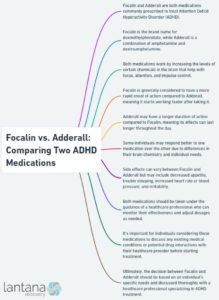Personalized Cancer Vaccines Are the Future of Cancer Treatment. Here’s How They Work
Customized Cancer Vaccines: The Future of Cancer Treatment
How Personalized Cancer Vaccines Work
Cancer treatment has evolved significantly in recent years, with a focus on tailoring therapies to each patient’s specific condition. One of the most promising advancements is the development of personalized cancer vaccines, also known as neoantigen vaccines. Unlike traditional vaccines, which are used to prevent infections, these vaccines are designed for individuals already diagnosed with cancer. Their purpose is to target unique proteins found on cancer cells, referred to as neoantigens, which are created by genetic mutations specific to each person.
Understanding Neoantigens and Their Role in Personalized Vaccines
Neoantigens are proteins present only on cancer cells and result from genetic mutations. These proteins are highly specific to each individual’s tumor, making them an ideal target for personalized vaccines. Dr. Toni Choueiri, an oncologist at Boston’s Dana-Farber Cancer Institute, explains that neoantigens are directly linked to tumor mutations, providing a unique marker for each patient’s cancer. This specificity allows scientists to create a vaccine tailored to an individual’s unique tumor profile.
The Science Behind Cancer Vaccine Development
The process of creating a personalized cancer vaccine begins with genome sequencing. This technology analyzes a person’s DNA and RNA to detect the genetic mutations responsible for cancer development. By examining tumor samples or blood, scientists can gain insight into the biological processes driving cancer. Combining genome sequencing with epitope mapping—identifying the exact portion of the antigen that antibodies target—helps refine the vaccine’s precision. This method ensures the vaccine specifically targets cancer cells while sparing healthy cells, a significant improvement over traditional treatments like chemotherapy and radiation.
Vaccine Platforms: Different Approaches, Different Benefits
Personalized cancer vaccines come in various forms, each with its own set of benefits and challenges. Some vaccines are protein-based, such as peptide or epitope-based vaccines, while others are cell-based, virus-based, or rely on RNA technology. Dr. Choueiri highlights the advantages and drawbacks of these platforms:
-
Cell-based vaccines have a higher potential to trigger a robust immune response but are expensive and complex to produce.
-
Protein- and peptide-based vaccines are more cost-effective and easier to manufacture but tend to be pricey.
-
Viral-based vaccines are easier to produce but carry the risk of leaving patients vulnerable to infections.
-
RNA-based vaccines allow for efficient delivery of multiple antigens but are less likely to provoke a strong immune response and require special frozen storage.
The Promise and Limitations of Personalized Cancer Vaccines
Although personalized cancer vaccines show great potential, they are not expected to replace conventional cancer treatments. According to Dr. Siqing Fu from MD Anderson Cancer Center, cancer is a multifaceted disease, and a combination of treatments is often required. Currently, only one personalized cancer vaccine has been FDA-approved: Provenge (sipuleucel-T) for prostate cancer. However, promising results from ongoing trials suggest that additional FDA approvals for personalized vaccines may be on the horizon.
Ongoing Trials and Future Vaccine Candidates
There are several promising personalized cancer vaccines currently undergoing clinical trials. Here are some noteworthy examples:
-
Melanoma
-
V940: A personalized neoantigen vaccine combined with the drug pembrolizumab. Early trials showed a 49% reduction in the risk of cancer recurrence or death.
-
EVX-01: A peptide-based vaccine combined with pembrolizumab, showing significant clinical responses in patients with metastatic melanoma.
-
EVX-02: A DNA-based vaccine that, when combined with nivolumab, has shown promising results in preventing cancer relapse in patients with completely resected melanoma.
-
-
Pancreatic Cancer
-
Autogene cevumeran: An mRNA vaccine targeting multiple neoantigens, showing potential when used with immunotherapy and chemotherapy in patients with pancreatic cancer.
-
-
Non-Small Cell Lung Cancer
-
Tedopi: A promising vaccine that targets specific neoantigens in lung cancer patients, yielding positive results in clinical trials.
-
-
Ovarian Cancer
-
UPCC 19809 and UPCC 29810: Both vaccines, currently in early-stage trials, use proteins derived from a patient’s tumor cells and are combined with drugs that inhibit tumor blood vessel growth.
-
Looking Ahead: The Future of Personalized Cancer Vaccines
While personalized cancer vaccines are still in the experimental phase, their potential to revolutionize cancer treatment is clear. With continued advancements in genomic sequencing and immunotherapy, these vaccines could become a critical component of cancer treatment in the near future. Researchers remain optimistic that as more vaccines are developed and FDA approvals increase, these targeted therapies will offer hope for patients battling various types of cancer.
💡 Frequently Asked Questions
How is this specificity opportunity?
Answer coming soon. We are working on detailed responses to this common question.
⭐ Expert Tips
- Include seasonal or trendy variations to keep your meals exciting.
- Highlight prep shortcuts or time-saving techniques for busy cooks.
- Consider dietary restrictions and include substitution suggestions.
✅ Key Takeaways
- These dinner ideas are perfect for impressing guests or enjoying special occasions.
- Choose recipes that match your skill level and available kitchen tools.
- Presentation and taste both contribute to a memorable dining experience.
📣 Join Our Community
Want more inspiration like this? Subscribe to our newsletter for weekly dinner ideas and cooking tips!



